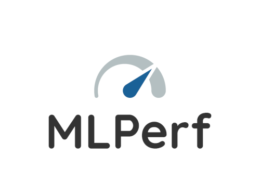OpenAI has launched the highly anticipated GPT Store, a platform that allows users to create and share their own customized versions of the popular ChatGPT. While there is excitement surrounding this release, creators of GPTs may have to wait a bit longer to start earning revenue from their creations, as the revenue sharing feature is not immediately available and is expected to be implemented in the first quarter of this year.
The GPT Store: Fostering a Vibrant Ecosystem
The GPT Store was announced at OpenAI’s first-ever developer conference, DevDay, held in San Francisco. It aims to provide a centralized marketplace for developers to list and share their custom GPTs with a wider audience. Similar to the Apple App Store and Google Play Store, OpenAI plans to compensate creators based on the usefulness and usage of their GPTs.
“The GPT Store would ‘pay people who build the most useful and the most used GPTs a portion of our revenue. We’re excited to foster a vibrant ecosystem with the GPT Store.'” – Sam Altman, OpenAI CEO
However, the exact details of the revenue sharing structure have not been disclosed yet. OpenAI plans to launch a GPT builder revenue program in the first quarter, starting with payments to creators based on user engagement with their GPTs. More information regarding the criteria for payments will be provided closer to the launch.
The GPT Builder: Empowering Users to Create Custom GPTs
To fully grasp the concept of the GPT Store, it is important to understand the GPT Builder. This new ChatGPT feature allows subscribers to build their own GPTs with a natural language chatbot-style interface. These customized versions of ChatGPT are designed for specific tasks such as generating GIFs, prototyping products, or providing tips for increasing social media engagement.
“I don’t have to prompt the default ChatGPT with a long preamble about what I want: instead, by navigating to my custom GPT email responder, for example, I can simply paste in the text of an email I get and it will immediately know to start drafting a relevant response.” – Anonymous User
The GPT Builder eliminates the need for software training and enables users to bring their ideas to life with just an internet connection and a keyboard. Previously, users could only access GPTs created by others through direct links or online sharing. The GPT Store now provides a centralized platform for users to discover and utilize third-party GPTs.
Although the GPT Store has already launched, the revenue sharing mechanism will be implemented at a later date. While ChatGPT Plus and Enterprise users can list their GPTs on the store, compensation for creators will come in the first quarter of this year. The precise earning potential and pricing of GPT usage is yet to be revealed by OpenAI.
Despite the lack of immediate revenue opportunities, the GPT Store offers a community leaderboard showcasing popular and trending GPTs. Categories such as DALL·E, writing, research, programming, education, and lifestyle further help users find specific GPTs tailored to their needs. OpenAI also plans to highlight useful and impactful GPTs on a regular basis, akin to the Editor’s Choice section of app stores.
Enterprises looking to leverage the power of generative AI can take advantage of the GPT Builder and GPT Store. The platform provides an excellent opportunity to showcase brands and potentially drive users to related products and services. With no coding experience required, anyone can explore the possibilities offered by custom GPTs and tap into this rapidly growing market.
While the GPT Store may not currently provide immediate financial benefits for creators, it sets the stage for a thriving ecosystem where individuals and organizations alike can contribute and benefit from the power of GPT technology.










